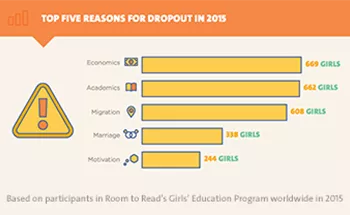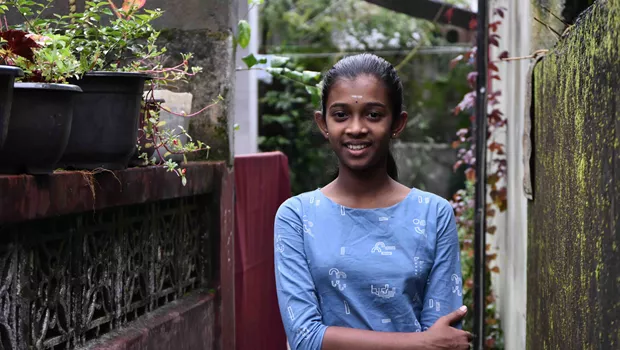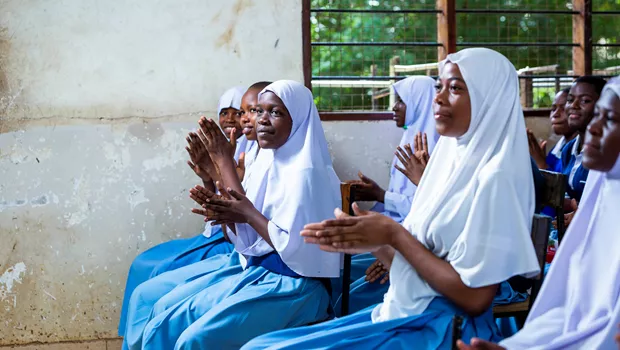
Rachel Mbushi works as a social mobilizer in Tanzania, mentoring students in Room to Read’s Girls’ Education Program.
When she participated in the Risk and Response pilot test in early 2015, she was asked to pay particular attention to four risk factors that Room to Read had shown elsewhere were strongly associated with dropout: repeated school absences, failure to attend life skills education sessions, low performance on exams, and parents’ absence from parent meetings. Whenever a girl exhibited one or more of these risk factors, Rachel would follow up with her (and sometimes her parents) with additional guidance and support to try to keep her coming to school.
One of these girls was Warda. At age 16, Warda was an eleventh-grade student at Lugoba Secondary School when she started missing school days. “I am one of six children in my family, and only two of us have attended secondary school,” Warda said. “The other was my brother, and he dropped out before graduation. My parents are small-scale farmers, and they cannot always provide for our basic needs. Sometimes we manage to have one meal a day, and sometimes none.”
Although Tanzania has abolished school fees for high school students, attending school takes time that a girl like Warda could otherwise use to help her family. In such a situation, remaining enrolled seemed like a luxury she could not afford.
Rachel noticed Warda’s repeated school absences, so she responded according to the training she received as part of the pilot: she visited Warda right away and talked to her about the issue. “When my social mobilizer visited me and asked me about going to school, I refused. I was worried.
Rachel didn’t give up. She continued to explain to Warda the long-term bene ts that an education could have for her future and her family. She also explained the material support Room to Read can sometimes provide to girls like Warda in order to alleviate some of the nancial barriers to education.How could I do that when my family was under such financial pressure? I thought there was no way for me to go back, so I decided to quit,” Warda said.
Once Warda began regularly attending Room to Read’s life skills education sessions, her attitude really began to shift. “Before joining the Girls’ Education Program, I thought a good thing would be to get married, like some of my other friends whose parents did not send them to secondary school. Room to Read has made me realize the importance of school and who I am today. Thank you for everything that you are doing to support me and take me to a right path.”
***
This story is part of our 2015 Global Monitoring Report. Check out the full online report here.
Invest in children's education today.



